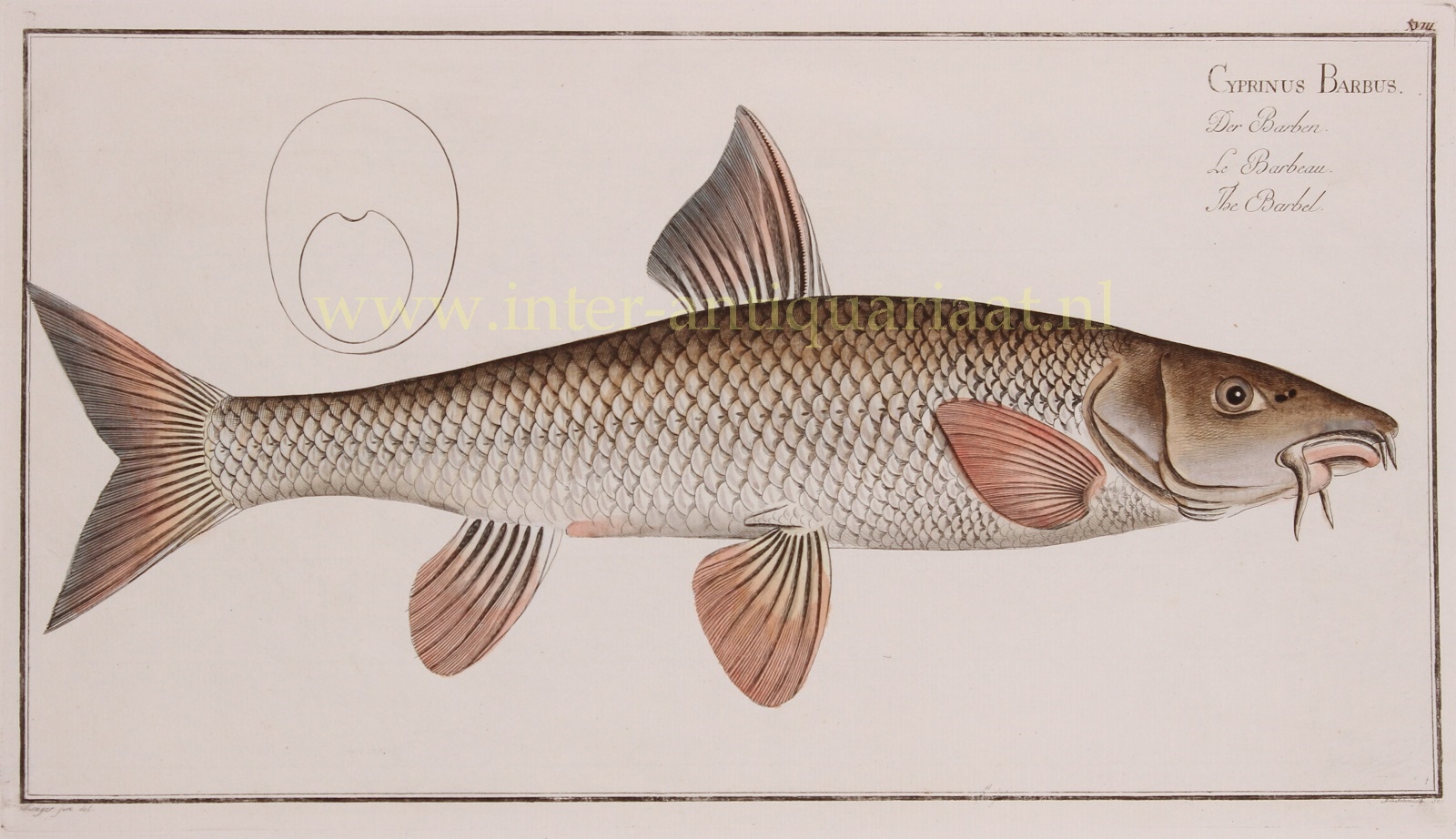Barbel (fish) – Markus Elieser Bloch, 1782-1795
€350
THE COMMON BARBEL
“Cyprinus Barbus/Der Barben/Le Barbeau/The Barbel” (plate 28), copper engraving made by Ludwig Schmidt after the drawing of Krüger jr, for Markus Elieser Bloch’s “Allgemeine Naturgeschichte der Fische” published in Berlin between 1782 and 1795. With original hand colouring. Size: 19 x 38 cm.
The common barbel is a species of freshwater fish in the Cyprinidae family, also known as the barbel. It is found in Europe and western Asia, primarily in the larger rivers and lowland streams. The common barbel has a long, cylindrical body with a distinctive barbel (whisker-like sensory organ) on its chin, used for locating food in murky waters. They are typically brown or olive in color with a lighter belly, and have a distinctive lateral line that runs down their sides. The common barbel is a bottom-dwelling fish and feeds mainly on insect larvae, mollusks, and crustaceans. Today it is a popular target species for anglers, especially for its size and strong fighting ability.
Bloch’s work on the “Allgemeine Naturgeschichte der Fische” occupied a considerable portion of his life, and is considered to have laid the foundations of the science of ichthyology. The publication was encouraged by a large subscription, and it passed rapidly through five editions in German and in French. Bloch made little or no alteration in the systematic arrangement of Peter Artedi and Carl Linnaeus, although he was disposed to introduce into the classification some modifications depending on the structure of the gills. To the number of genera before established, he found it necessary to add nineteen new ones, and he described 276 species new to science, many of them inhabitants of the remotest parts of the ocean, and by the brilliancy of their colours, or the singularity of their forms, as much objects of popular admiration as of scientific curiosity.
Bloch is considered the most important ichthyologist of the 18th century.
Price: Euro 350,-


